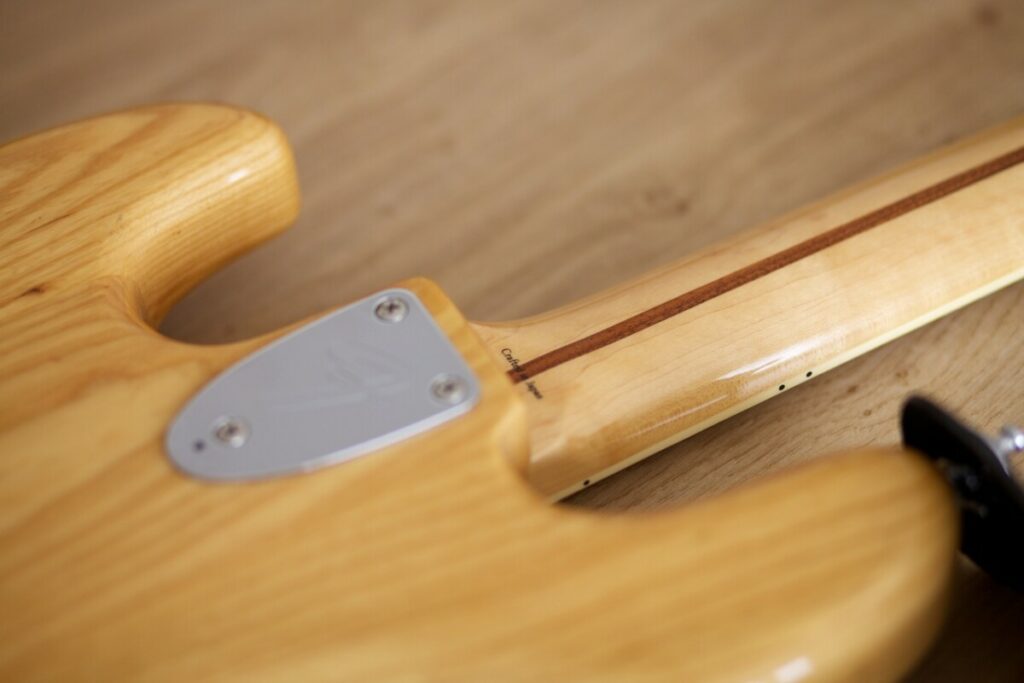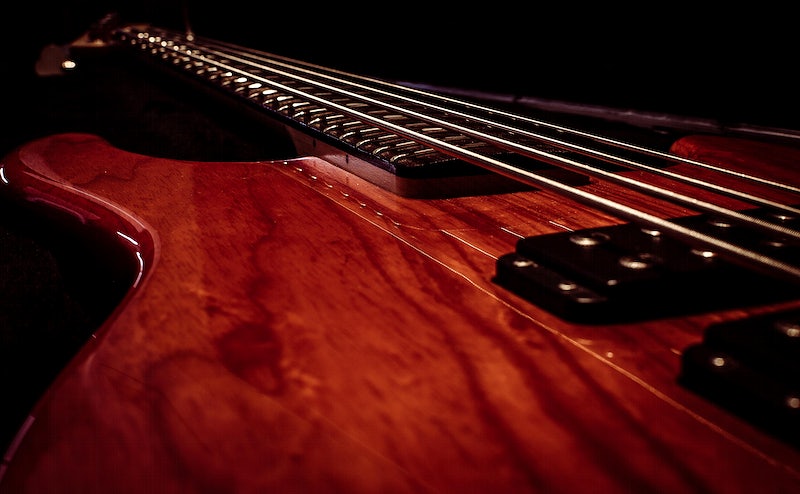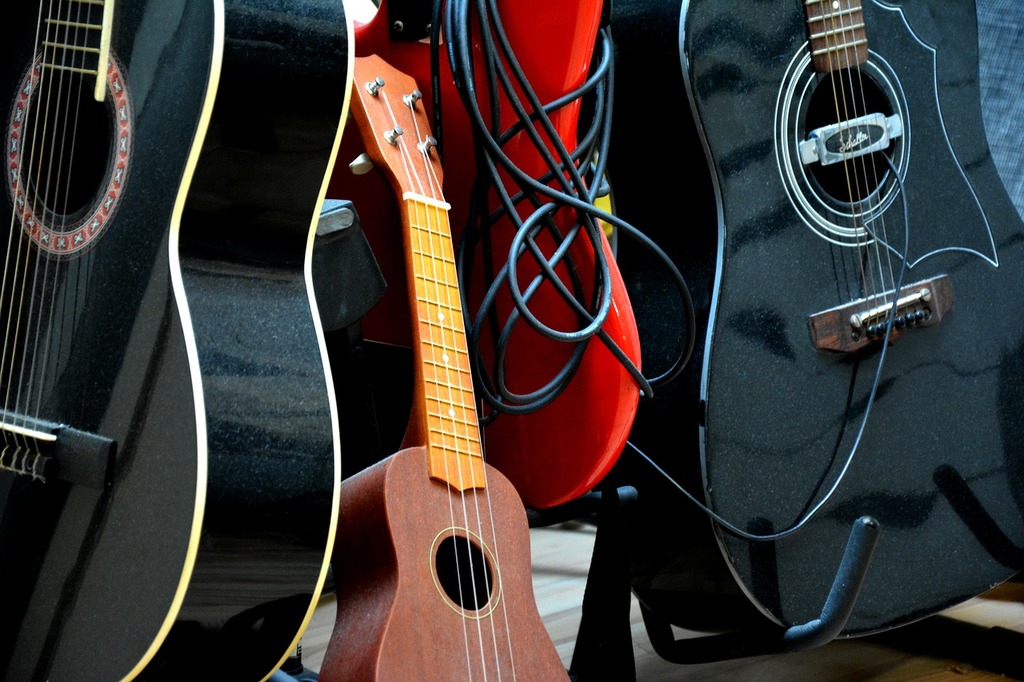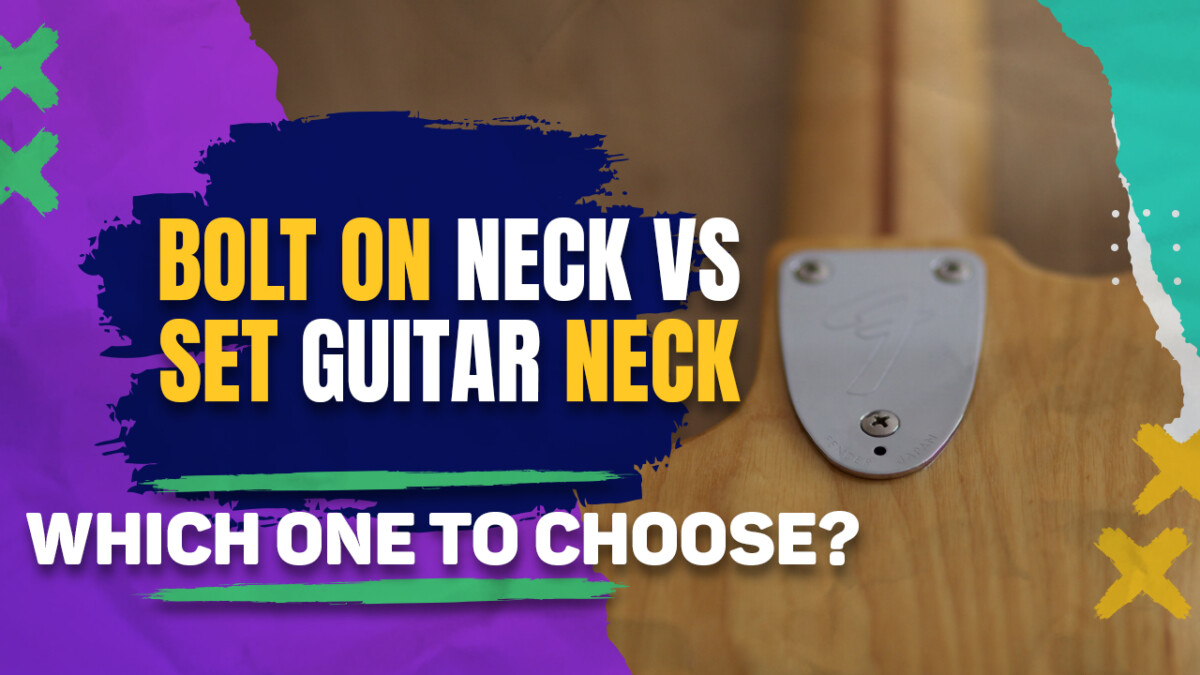Curious about how your guitar’s neck joint influences its sound, tone, and functionality? You’re in good company!
We’re going to delve into the advantages and disadvantages of the two primary types of neck joints: bolt-on and set neck.
We’ll explain2 everything from their architecture to their impact on tonality and acoustics. This will help you make an informed decision about which type suits your style best.
So hang tight! We’re embarking on a journey through the fascinating realm of guitar neck joints!
Table of Contents
Types of Neck Joints

So you’re probably already clued up on your guitar neck joints – bolt on and set neck, right?
Boltons are the go-to for electric guitars and basses. They’re like the gateway drug of guitar customization – no-fuss installation process and super easy to upgrade or personalize compared to their set-neck counterparts.
Set necks though? These bad boys are found in both acoustic and electric guitars. If you’re chasing that superior tone quality with some oomph sustain, they’ve got your back. Plus they offer solid stability while still giving plenty of room for upgrades or personal touches.
Whether it’s a bolt-on or set-neck type joint – each has its own charm depending upon what you prefer as a player. The good news is both types provide ample options when it comes down to upgrading them according to your needs so finding just the perfect one won’t be an issue at all!
Construction and Design
Take a look at the differences between bolt-on and set-neck guitars. Bolt-ons have their necks attached to bodies with bolts or screws, typically fashioned from maple or mahogany, topped off with either a rosewood or ebony fretboard.
On the other hand, set-necks are glued onto the body using some serious adhesive power. They’re generally crafted from similar materials – maple or mahogany for the neck and either rosewood or ebony for that all-important fretboard.
Let’s break this down:
Playability:
- Bolt-on guitars take top marks here due to their flexible necks.
- Set-neck counterparts offer up uniformity in feel & sound as they’ve got that inseparable connection between body and neck.
Intonation:
- Bolt-ons win again thanks to their adaptable nature which provides superior intonation.
- With Set-necks though, you get consistency in tone & intonation owing to its integral bond between parts
Construction:
- When it comes down to repairs and maintenance – bolt-ons make your life easier because of those handy bolts attaching everything together.
- Yet if we talk about permanence – set-necks deliver on account of that powerful adhesive forming an unyielding union with the guitar’s body.
No matter what kind of guitar you pick, rest assured it’ll be a masterpiece – excellently crafted for optimum comfort and perfect pitch.
Tone and Sound

The voice and vibe of your guitar heavily depend on the wood species used in its making.
When we dive into bolt-on versus set-neck guitars, the neck joint becomes a game-changer for the sound produced.
In bolt-on necks, string tension directly reverberates to the body of your instrument creating an upbeat sound that’s crisp as a morning breeze.
On another note, if warm tones with deep resonance are more up your alley then go ahead with set-neck guitars – they’re famous for that!
Not just impacting the tonal quality but also tuning precision – a bolt-on neck stands tall by offering top-notch sustain and spot-on accuracy while tuning.
So which type fits best? Well! It boils down to what sort of melody you want to create. Both have their unique charm when it comes to tonality so let personal taste guide you through this decision.
Stability and Reliability
Before you jam out on your guitar, it’s crucial to ensure that it won’t let you down in the middle of a killer solo. Whether bolt-on or set-neck, each kind has its own strengths and weaknesses concerning sturdiness and dependability.
Here are some key factors to weigh up when choosing the perfect guitar for your rockstar lifestyle:
Bolt-on:
- Trustworthiness: They’re simpler to tweak and fix thanks to an adjustable neck joint.
- Solidity: Usually not as firm as a set neck due to the nature of their neck joint.
Set Neck:
- Dependability: The rigid structure of their neck joint keeps them steady through changes in weather or temperature variations.
- Consistency: Typically more solid than a bolt-on which results in smoother playability and precise intonation.
Cost Comparison

Curious about the price gap between bolt-on and set-neck guitars? In general, bolt-on models are easier on your wallet. Whether your picking the best beginner guitar or the most expensive, the choice is yours. This is because they’re less labor-intensive to install and upkeep. Why? The neck is simply secured with bolts, making it a breeze to detach and swap out if needed—resulting in lower repair costs.
On the flip side, set-neck guitars have a higher initial cost due to their complex installation process that demands particular tools. They also come with steeper maintenance fees courtesy of the robust glue used for attaching the neck. But don’t grimace just yet — these babies deliver longer sustain and superior playability!
In essence, your choice hinges on both personal taste and budget constraints.
Frequently Asked Questions
Does the Type of Neck Joint Affect the Weight of the Guitar?
Absolutely! The neck joint type does influence your guitar’s weight. Factors like stability and choice of wood matter a lot here, so typically, you’d find that bolt-on necks are lighter than set ones. So yes, it’s fair to say that the type of neck joint can tweak your guitar’s total weight.
Are Bolt-On Necks Easier to Modify Than Set Necks?
Totally! That’s one of the cool things about bolt-on necks – they’re super easy to tinker with. Whether it’s changing up bridge construction or tweaking the neck shape, these types offer plenty of room for customization. If you’re an avid player who loves experimenting with sounds and looks, a bolt-on is definitely worth considering.
How Does the Type of Neck Joint Affect the Sustain of the Guitar?
Well, it does make a difference in terms of sound quality and string action when comparing sustain across different types of joints – whether we’re talking about bolt-ons or set designs. These factors will alter how long notes resonate on your beloved six-stringed friend; so don’t be afraid to try out different styles until you hit upon that perfect combo!
How Does the Type of Neck Joint Affect the Playability of the Guitar?
Play around on both bolt-on and set-neck guitars –you’ll quickly notice differences from tone variations to intonation peculiarities which could either enhance or dampen your jamming session experience depending on personal preference. Every type has its own unique feel which might just inspire some new riffs!
Are Bolt-On Necks Less Durable Than Set Necks?
Looking at pure durability aspects, though there may be adjustment disparities between them,set-necks usually come out as winners owing mainly to their build materials.
Conclusion
When considering neck joints, it’s all about what vibes with you. Bolt ons are user-friendly and wallet-friendly too, but set necks promise steadfastness and dependability.
At the end of the day, it boils down to choice; perhaps one resonates with your musical groove more than its counterpart. There’s no black or white here – it’s pure serendipity and discovering that perfect pitch for yourself.

